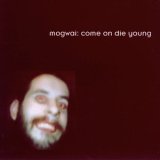Jesse Owens, the 1936 Olympics, and World Cup Parallels

There's a short piece in "The Economist" this week which attempts to explain why the World Cup is better than the Olympics. 70 years after the 1936 Olympics took place, the Berlin Olympic Stadium is set to host the World Cup finals this year. The article spends most of its time discussing how World Cup has proven itself to be insusceptible to political manipulation and posits that this is the reason for the sport's great popularity. The World Cup standings do not reflect global hierarchy in the way that the Olympics do and the best teams in World Cup always have some blinding quality that you just can't pay for or that, at the very least, thwarts the best-laid plans. On a good day, less well-known teams can throw a kink into any better known team's plans just by playing inspired football (see Sweden vs. Trinidad-Tobago and T&T's inspired interim goalkeeper, Haslop, as an example). The article also mentions that World Cup defies racial stereotyping and has not shown to be susceptible to enhancement by substance abuse - two issues which plague the Olympic games to this day.
By contrast, when the Olympics were last in Berlin in 1936 (also known as the "Nazi Olympics"), the treatment of Jewish and African athletes was appallingly bad. By all accounts, certain Jewish participants were unable to compete on behalf of their countries for fear of how the fuhrer would feel when faced with Jewish winners on the podium. Thankfully, some did compete and even manage to win their events (I wonder how that made Hitler feel?). The US, however, shares some of the blame in that they pulled a couple Jewish track-stars (Marty Glickman and Sam Stoller) off of their 4X100 team in favor of Jesse Owens and Ralph Metcalfe, both African-Americans, at the last minute.
People love to point to Jesse Owens's historic performance at those games, where he won 4 gold medals, as evidence against Hitler's plan for a master race and to gloat at how wrong-headed this tiered treatment of humans sounds today. Unfortunately, the US was not a sterling "beacon of light" at the time either. Jesse Owens should have been a hero when he came back to the US. Instead, this is what Owens found:
When I came back to my native country, after all the stories about Hitler, I couldn't ride in the front of the bus. I had to go to the back door. I couldn't live where I wanted. I wasn't invited to shake hands with Hitler, but I wasn't invited to the White House to shake hands with the President, either.
So, hurray for World Cup and hurray for a Germany coming to grips with its past and let it be a lesson to every country that we've all made stupid decisions and treated people horrible in the past. On the pitch, however, we have always been equal (except for the US who has never fielded a good team until this year). Go Trinidad-Tobago!
Technorati Tags:
Berlin, JesseOwens, WorldCup, Nazi, racism

